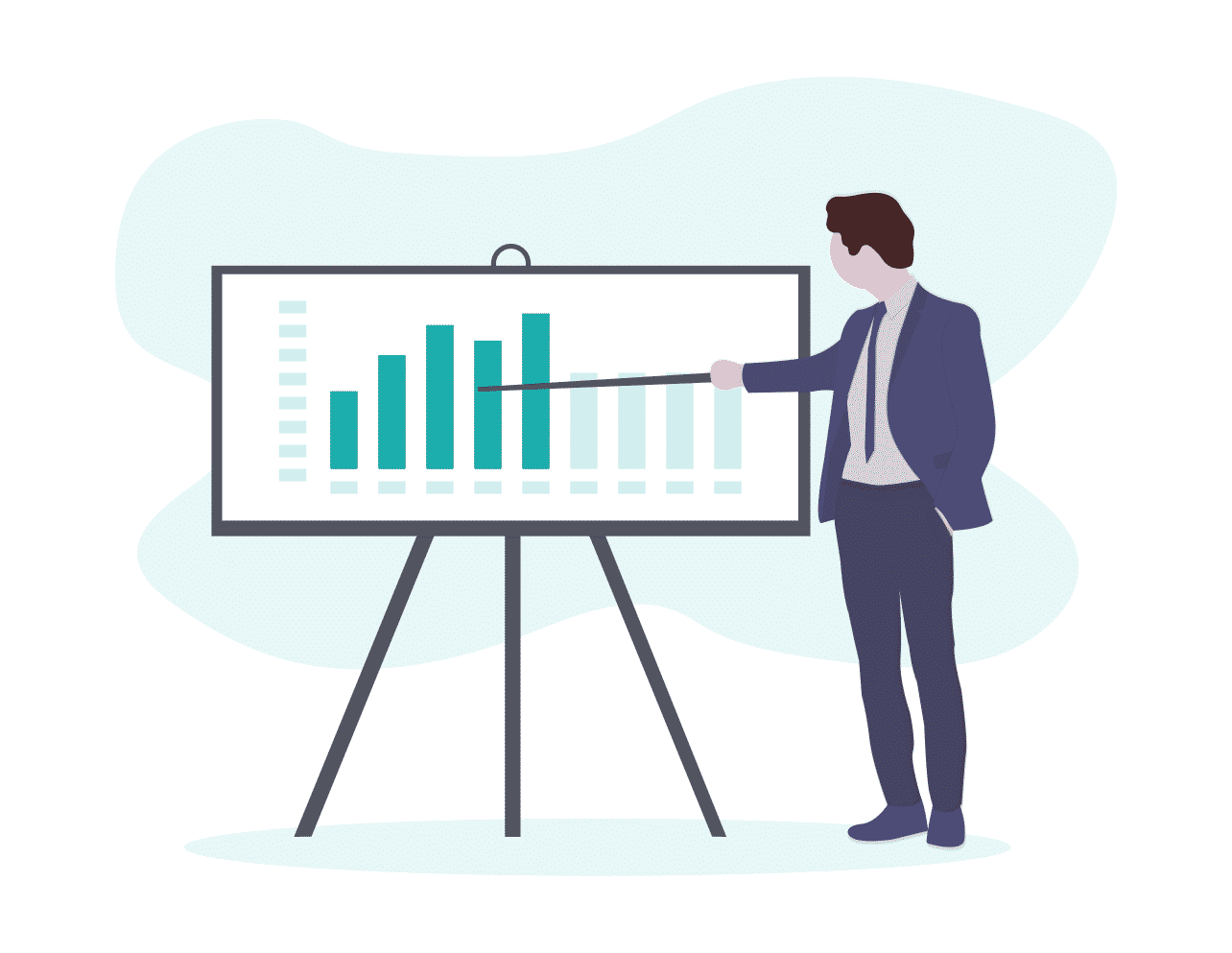Capital Gains Tax When Selling Property
If you’ve decided to sell your investment property, chances are you’re selling it for more than you bought it for. If this is the case, it’s time to start thinking about capital gains tax (CGT). Unless you’re exempt, CGT can drastically reduce the profit you earn from selling your investment property.

Table of Contents
What is capital gains tax?
Investors who make a profit from selling an investment property are required to pay tax on their financial gain. This is referred to as capital gains tax (CGT) and is part of your normal tax assessment each year.
In fact, all investors who earn a financial gain when selling an investment will need to pay CGT, including investors in shares, cryptocurrencies and collectables.
A capital gain is the difference between what you paid for an investment and what you sold it for. A capital loss can happen when you sell an investment for less than what you paid for it.
When do you need to pay capital gains tax?
You must pay capital gains tax when there is a CGT event for your investment. The two most common CGT events for property are:
- Disposal of a CGT asset
- Loss or destruction of a CGT asset
The Australian Taxation Office provides a complete list of CGT events.
Generally, when you sell an investment property, you will need to include the capital gain on your tax return. You must use the contract date as the date you received the capital gain, not the settlement date.
Calculate your capital gain with our CGT calculator.
Are there exemptions to capital gains tax?

Eligible investors have two exemptions to choose from:
- Main residence exemption
- Pre-CGT exemption
The main residence exemption
Property investors are exempt from capital gains tax if they live in the home as their main residence. For your property to be eligible for this exemption, you must:
- Live in the property
- Keep all your belongings there
- Receive mail at the address
- Be registered on the electoral roll under that address
Generally, you need to be an Australian resident for tax purposes to claim this exemption.
Pre-CGT exemption
The capital gains tax was introduced on 20 September 1985. If you originally purchased your investment property before this date, you are exempt from paying capital gains tax because your asset is considered a pre-CGT asset.
What if the investment property is a gift to family or friends?
If you decide to give your investment property to a close relative or friend, you will still need to pay capital gains tax, despite receiving nothing for your investment. This is because you are deemed to have received the current market value of the property. This applies to:
- Gifts where you receive no financial reward
- Sales where you do not act independently of one another, which is often the case between relatives and friends.
If the above applies, the financial gain (or loss) you receive makes no difference. The ATO still calculates CGT based on current market value, not money received.
CASE STUDY
Joey has spent a lifetime paying off her investment property. She only has $50,000 left to pay on her mortgage and decides to sell the property to her son for $50,000.
Both mother and son are happy with the deal until Joey realises that she has to pay capital gains tax on the current market value, which is $350,000, according to the recent valuation.
How to calculate your capital gain (or loss)

Essentially, your capital gain is the difference between the cost of your property and the sale price (or market valuation when gifting or selling to friends and family). The best way to accurately calculate your capital gain is to keep accurate and detailed records.
You can deduct all of the expenses incurred by your investment property, so good recordkeeping can reduce the amount of CGT you need to pay.
What is included in the cost of an investment property?
According to the ATO, the main costs of your property include:
- The money paid to buy the property
- Other fees related to buying the property
- Any property expenses while owning the property
Once you know the true cost of owning your investment property, you simply deduct it from the amount you received for selling it.
How much is the capital gains tax?
Contrary to popular belief, the ATO does not charge a separate capital gains tax. Rather, your capital gain is added to your assessable tax income in your tax return, which will increase the amount of tax you need to pay for the year.
The capital gain may put some of your assessable income into a higher tax bracket.
Use the ATO’s resident tax rates 2020–21 table below to calculate how much tax you will pay after adding your capital gain.
| Taxable income | Tax on this income |
| 0 – $18,200 | Nil |
| $18,201 – $45,000 | 19 cents for each $1 over $18,200 |
| $45,001 – $120,000 | $5,092 plus 32.5 cents for each $1 over $45,000 |
| $120,001 – $180,000 | $29,467 plus 37 cents for each $1 over $120,000 |
| $180,001 and over | $51,667 plus 45 cents for each $1 over $180,000 |
Source: Australian Taxation Office
CGT on co-owned investment properties
For properties owned by more than one person, the capital gain is divided according to ownership percentage. For example, if two people own 50% of the property each, they will each add 50% of the total capital gain to their tax returns and pay tax accordingly.
Use our CGT calculator to work out how much you’ll need to pay.
How to reduce how much CGT you pay
Investors can minimise their CGT or avoid it completely by:
- Keeping the property for a minimum of one year
After a year, individuals and trusts can reduce the capital gain by 50%, drastically reducing how much CGT they pay. - Holding the property in a self-managed investment fund
Complying SMSFs can reduce the capital gain by 33.33%. - Keeping the property instead of selling it
If you find that CGT takes most of your profit, it may be worth holding on to your investment instead.
Read more about selling your investment property here. Our complete guide can help you decide whether selling is the best option.
What is a capital loss?
Just like you can earn profit on the sale of your investment property, you can also make a loss. This is referred to as a capital loss. You work this out in the same way by calculating the difference between the cost and sale price of your investment.
A capital loss occurs when the cost of your property is higher than the money you received when selling it.
Can I reduce my tax income with my capital loss?
No. If you have a capital loss, it does not affect your usual taxable income for the year. However, you can use your capital loss to reduce a capital gain, even one in the future.
You can defer a capital loss until you next make a capital gain. For example, you make a capital loss in 2022 but you defer it because you have made no capital gain. You then make a capital gain in 2024, and you use the previous capital loss to reduce the amount of capital gains tax you need to pay.
What is negative gearing?
When you buy an investment property with borrowed funds, your rental income does not always cover the cost of owning the investment. If this is the case, you can negatively gear your property.
At the end of each financial year, you can claim the loss you have made on your investment, which reduces the amount of tax you need to pay.
Despite making a loss each year, your investment property will likely still increase in value as time goes by. At the time you sell the property, you will likely make a profit, making it necessary to pay capital gains tax.
True cost of selling an investment property

Capital gains tax is not the only cost that can significantly reduce your profit when selling your investment property. The following is a list of the other costs to consider before deciding to sell:
- Real estate agent fees and commission
Be sure to ask for detail of all fees upfront. - Costs of breaking a mortgage
Banks charge this on fixed-rate mortgages only. - Mortgage discharge fee
This covers paperwork associated with paying off your mortgage in full. - Property preparation costs, including renovations, repairs, maintenance and staging
It pays to present your property to its fullest potential, but be sure to keep an eye on cost. - Marketing fees (usually payable to the agent)
Effective marketing can earn you a higher selling price. Professional photography is often a part of great marketing, so be sure to include this in your costs. Read more here about the cost of real estate photography. - Auction fees
- Council rates and body corporate fees
You will need to pay for these costs in the partial quarter that you’re selling it. You pay up to date at settlement. - Legal fees
These are often cheaper for the seller and can be as little as $1,000.
Cost often vary by state, so it pays to do your research. Our article, Costs of Selling a Property, offers state-by-state advice and calculators that can help you work out your costs.
If you decide to sell, our handy guide to selling your investment property contains everything you need to know to secure a profitable sale.




